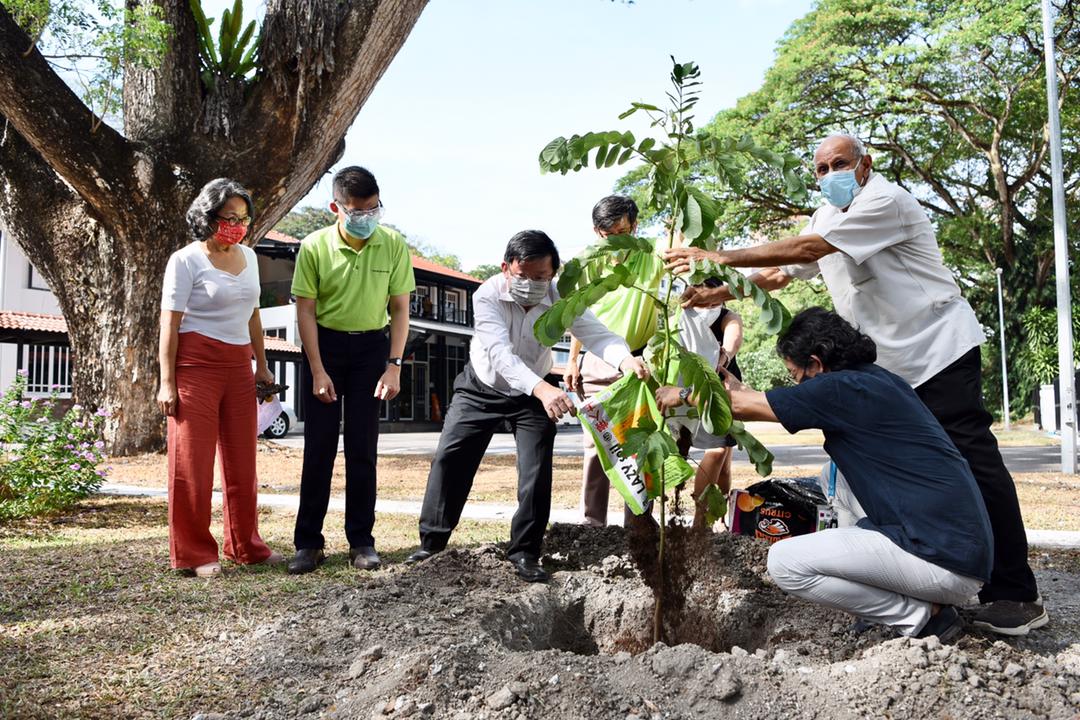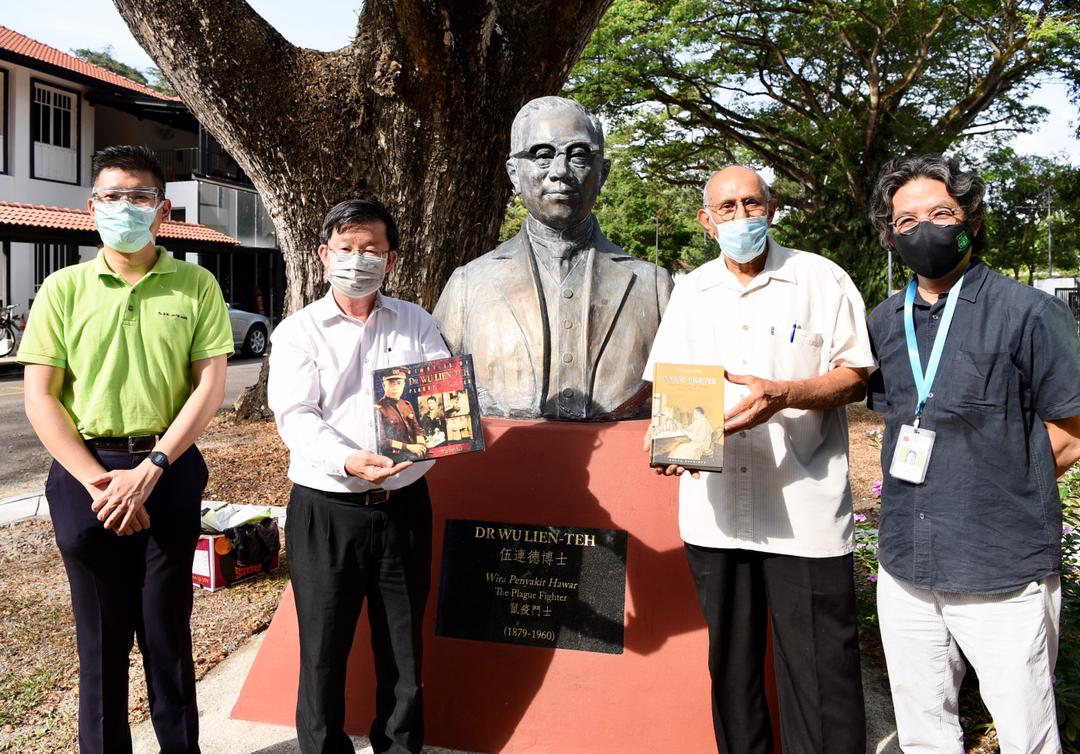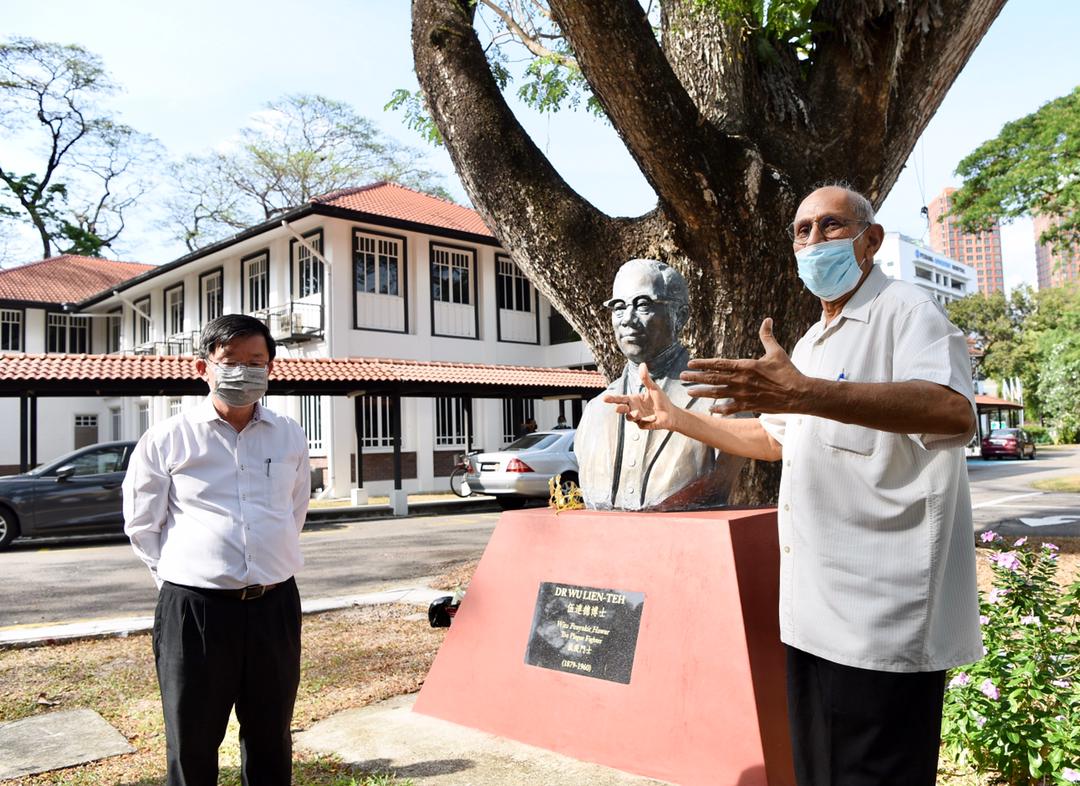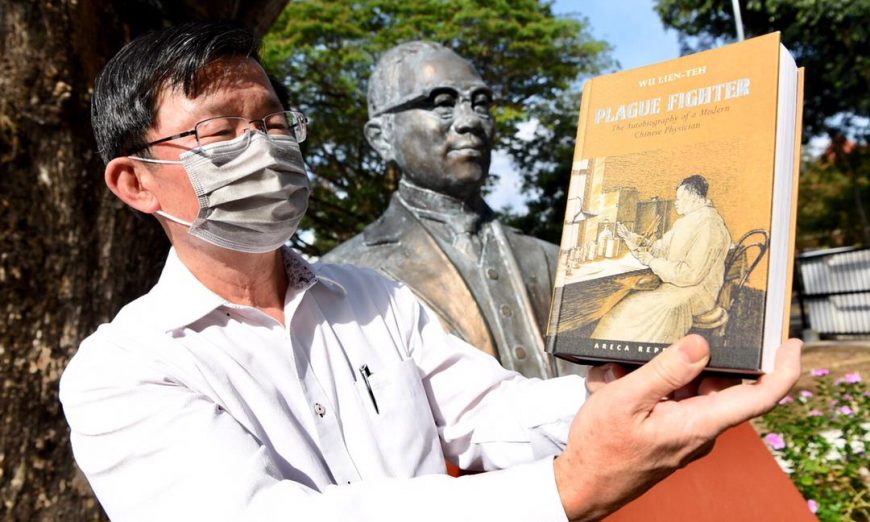PENANG celebrated the 142nd birthday anniversary of its iconic legend Dr Wu Lien-Teh by planting a herbal plant at the Penang Institute to commemorate his works on traditional Chinese medicine and also by launching the second printing of Dr Wu’s autobiography, The Plague Fighter, today.
Dr Wu’s name became even more internationally acclaimed today when Google Doodle honoured the late Malaysian epidemiologist for playing an important role in fighting the Manchurian Plague in China in 1910-1911.
He was also credited for inventing the surgical face mask, which was made of cotton and gauze, to fight the contagious plague.
Chief Minister Chow Kon Yeow said the contributions of Dr Wu should be known by more people.
He said this when he took part in a tree-planting ceremony at the newly-introduced Dr Wu Lien-Teh Herb Garden in the compound of Penang Institute in Brown Road.

He said the Penang government has also promoted Dr Wu’s works through the Dr Wu Lien-Teh Society, which was established by the Penang Institute, in October 2012.
“I believe that many people in Penang and Malaysia do not know much about Dr Wu’s past contributions.
“He invented the face mask when fighting the plague in China, which can be said to be the originator of modern N95 masks.
“Why his deeds were not well known to everyone was probably because they were never taught in textbooks. It was not until the emergence of the Covid-19 did people begin to pay more attention to personal hygiene and know more about Dr Wu’s works,” Chow said during an interview by Astro today.

He added that to commemorate this great person, there was a residential area in Penang named after him as Taman Wu Lien Teh, and also a road named after him as Jalan Dr Wu Lien Teh.
Chow said Dr Wu was very knowledgeable about traditional Chinese medicine and for this reason, the Penang Institute has set up Dr Wu Lien-Teh Herb Garden to let more people know about his research on herbal medicine.
Besides Chow, others who took part in the tree-planting ceremony were Penang Institute executive director Datuk Dr Ooi Kee Beng, Dr Wu Lien-Teh Society president Datuk Seri Dr Anwar Fazal, Penang Institute chief operating officer Ong Siou Soon, Dr Wu Lien-Teh Society secretary Dr Hor Chee Peng and Dr Wu Lien-Teh Society treasurer Clement Liang.
The first herb is the ‘Senna alata’, also known as Emperor’s Candlestick, or ringworm shrub. It is used to treat ringworms and other fungal infections on the skin. Other herbal plants would be planted in due time.

Ooi said the garden would be open to the public once it was fully developed.
Ooi said a bronze bust of Dr Wu was presented by the University of Harbin (China) to Penang in 2014. The bust was placed at the Penang Medical College until 2016, and was later moved to the Penang Institute to make it more visible to the public.
Anwar said Dr Wu, who was a former Penang Free School student like him, was actually a legend in many ways, not just a hero in medicine.
“He was also an anti-racism and anti-opium fighter.
“Today, we want to remember the greatness of his courage, his competence and also his creativity.
“He was able to create a mask; the first world professional mask which was named the Wu Lien-Teh mask.
“And that was a great model for all of us in Penang and Malaysia. We need more of these people, whom I would call ‘inspirators’. People who can become an example to our nation and show the world that Penang, Malaysia can produce great people,” said Anwar.
Anwar said there was a very strong institutionalised racism in the country during Dr Wu’s time.
“He was the best student in Cambridge, and also the most highly qualified doctor in Malaysia. But because he was not a European, he could not practise as a doctor in a government hospital. He could only be a medical assistant.
“Also, when passengers took the funicular train up Penang Hill, Europeans were on one side and others on another side.
“That was part of his struggle. He had the courage to challenge the authorities and also the opium licensed owners at that time.”
Anwar said the authorities discriminately targeted him and also charged him in court with opium possession in his clinic.
After he was fined, Dr Wu got an invitation from China to help them solve the Manchurian Plague. Dr Wu decided to go there and the rest was history. Dr Wu later started the China Medical Association, which now has half a million members.
Anwar said when Dr Wu came back to Malaysia, he set up a simple clinic in Ipoh before returning to have a home in Air Itam, Penang.
Dr Wu died in 1960, at the age of 80.
Story by K.H. Ong
Pix by Muhamad Amir Irsyad Omar
Video by Chan Kok Kuan

